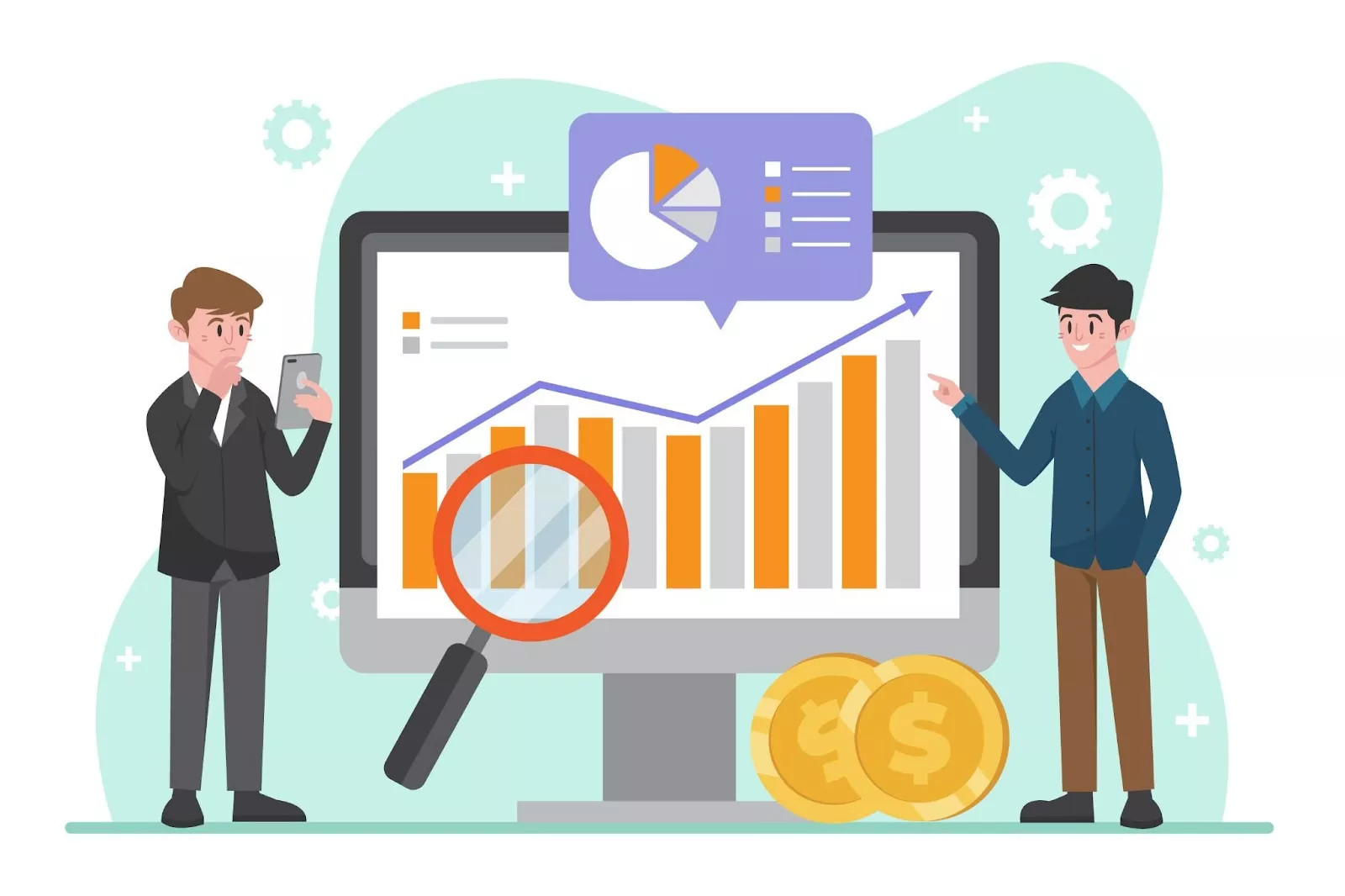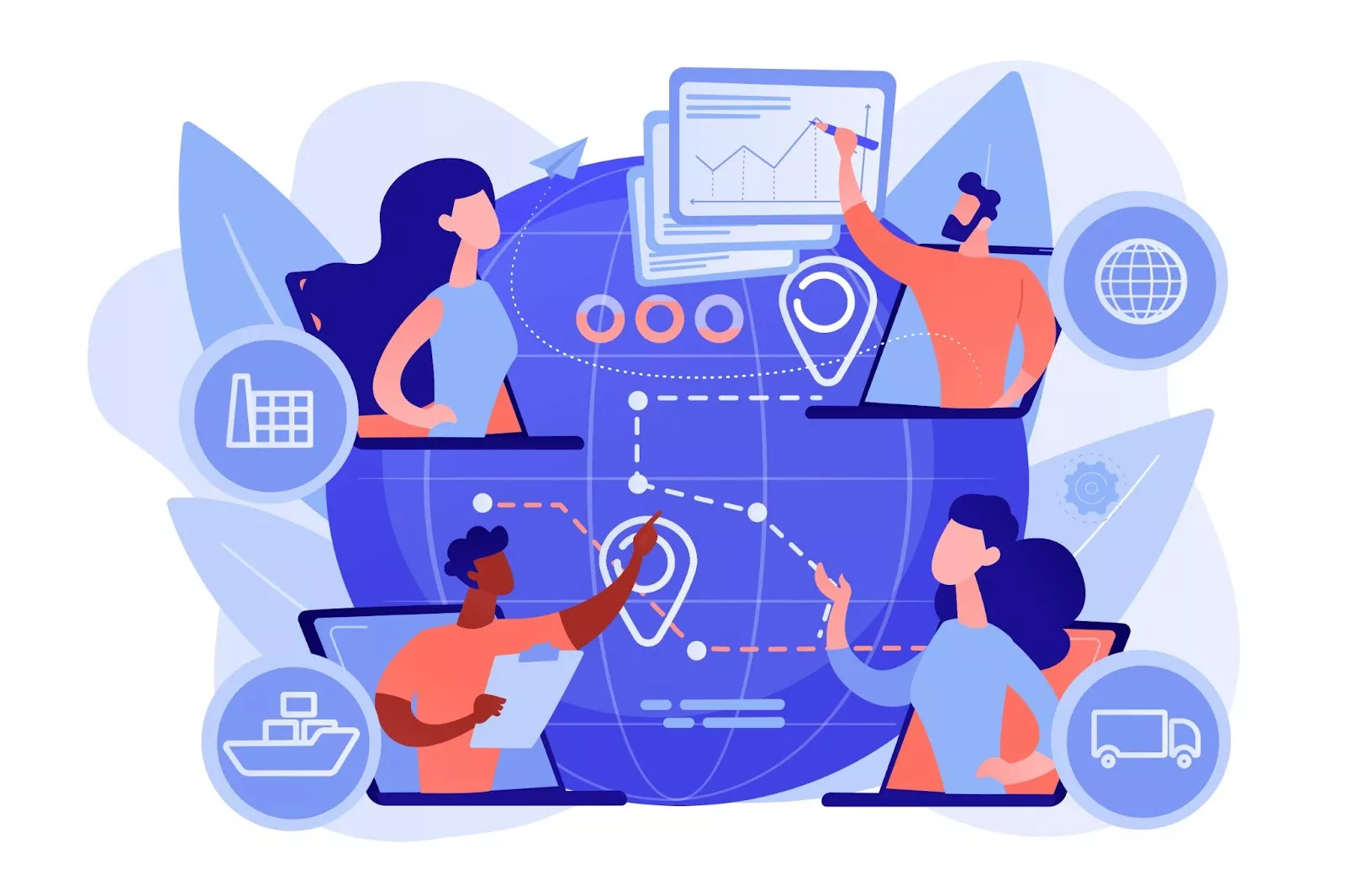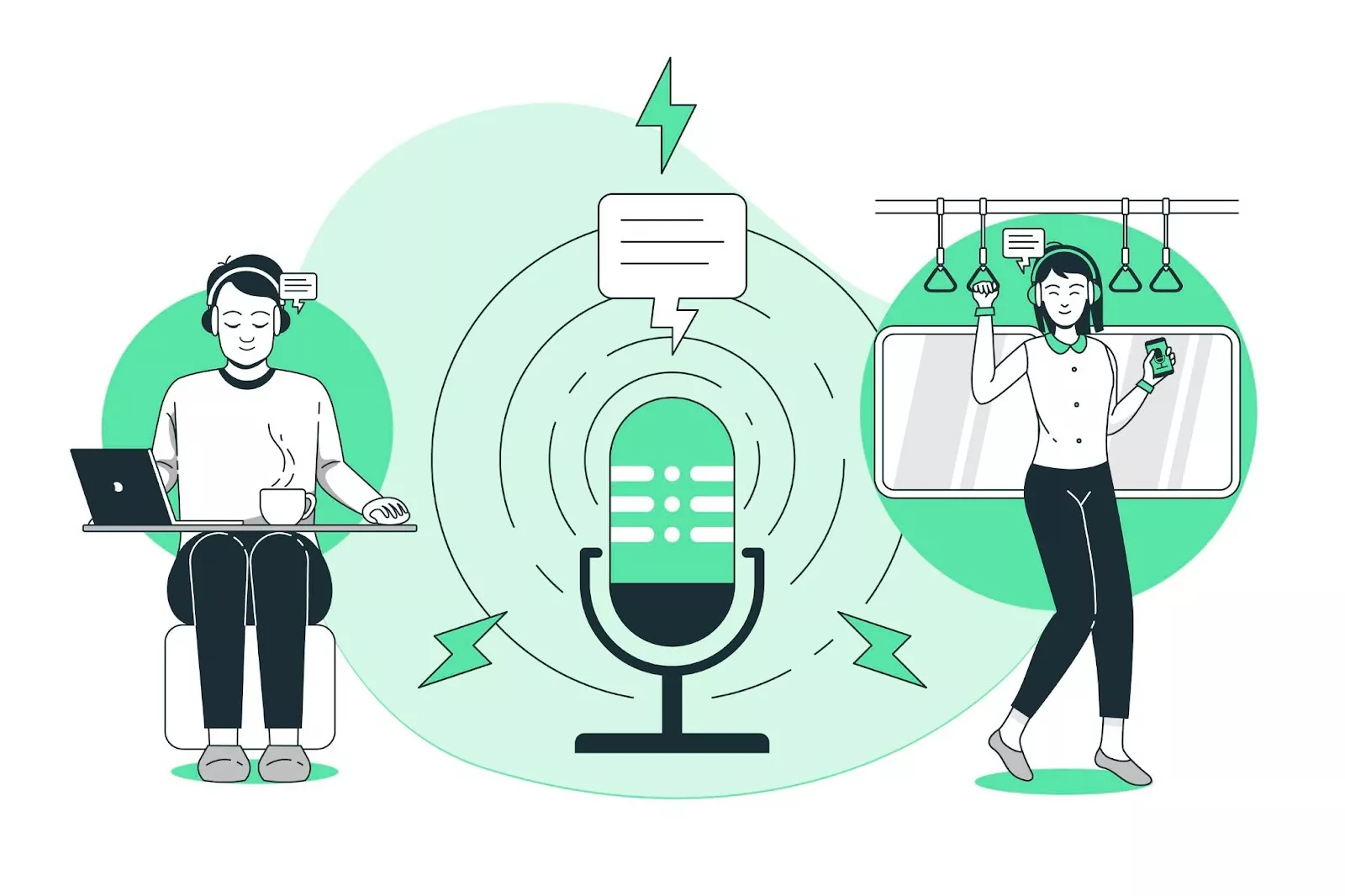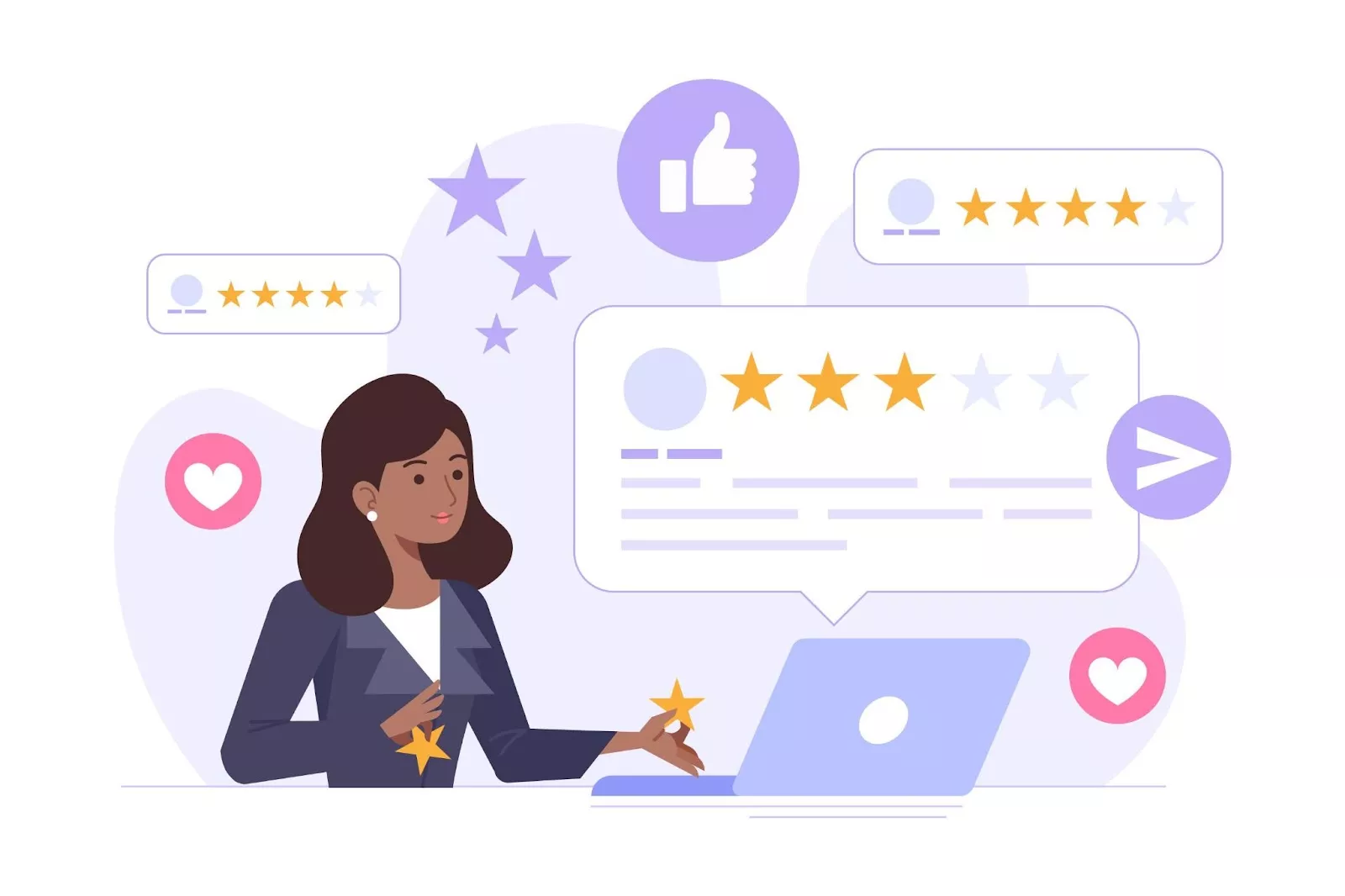
When you hear the word “AI” or “Artificial Intelligence,” what comes to your mind? The optimists say WALL-E, while the pessimists say Terminator.
It entirely depends on what light you see in AI and what you’ve heard about it. But let me assure you, it’s much more like WALL-E!
This is true because marketing is not an easy job! All that planning, creating strategic campaigns, launching them them, and tracking them while making small changes here and there.
While some might think that AI is all about automating tasks, it’s barely scratching the surface of the glaciers of tasks that AI and machine learning can do. Let’s see how you can make use of AI for marketing your business in 2024.
Also read: Best AI Chatbots to Boost Your Business
How You Can Use AI For Marketing Your Business in 2024
1. Improving Customer Service With AI

Have you ever been greeted by a chatbot after visiting a website? They are usually small floating pop-ups on the bottom-left side of your screen, always ready to help you out. Chatbots have become standard on business websites since customers can interact with them at all times, 24/7.
Chatbots make use of a combination of Natural Language Processing(NLP), Machine Learning(ML), and AI to process customer requests at higher speeds. These chatbots are designed with human-like scripts and are equipped to answer questions before handing interactions off to actual sales representatives when the need arises. Many times, people honestly cannot tell the difference between the two!
From a business standpoint, using chatbots is much more efficient and economical in the short and long term. Plus, customers relish the quick responses that a chatbot generates. It is a win-win situation. Meanwhile, the customer service employee’s time is directed towards more personalized requests.
2. Sales Forecasting With AI

AI marketing software like Peak.ai can use predictive analysis to forecast sales based on contemporary data. This allows the teams to adjust their course way before time to reach the desired goals in the future.
The sales forecasting ability also helps the employees to spend their efforts only on the things that are bound to help them reach their desired goals and efforts.
This sales forecasting technology uses Machine Learning to train models with past and real-time contemporary data. Thus, with each passing day, forecasts become more and more precise.
To get started, you must forecast the key sales KPIs that matter to your business. These KPIs may include:
- Average sales cycle length
- Customer lifetime value
- Cost per acquisition
- Customer churn/retention rate
- Conversion rates
3. Optimizing Supply Chain Operations

If your company struggles with meeting delivery deadlines, AI might be your perfect solution.
4. Providing perfect product recommendations
AI-driven solutions can accurately assist companies in predicting the price of shipping and materials.
AI also estimates how fast the product can move through the supply chain. These valuable insights help the supply chain professional make informed, data-backed decisions and support the smooth operation of the entire business.
For smaller businesses, AI can also help delivery drivers find quicker routes in the city with the least amount of vehicular traffic!
Companies can make use of AI for marketing to do what it does best: recommend products based on past purchases and tastes. In the long term, this helps both the customer and the company save a lot of time and energy, which proves to be economical.
By tracking the customer’s behavior on a company website, AI can quickly learn the taste and budget of the customer. With this data, it can accurately recommend the perfect products to the customer.
The best example is popular streaming services like Netflix and Amazon Prime. By analyzing the types of movies a person usually clicks on, the streaming service AI recommends similar content to watch, which increases customer retention.
5. Customer Targeting and Developing buyer personas

Every customer is unique, but when you zoom out and watch from an eagle’s point of view, you start to see patterns among specific segments. AI is what identifies these first and fast!
With these patterns, you can send personalized customer messages based on their values, feelings, personas, and experiences.
Marketo found that 78.6% of the 2,200+ consumers surveyed said: “They are only likely to engage with a brand which uses coupons or other offers if those promotions are directly tied to how they have interacted with the brand.” Consumers want personalization.
6. Speech And Language Recognition

Suppose you’ve used virtual assistants like Siri and Cortana or the Skype voice recognition translator tools. In that case, you already know this technology is as accurate as it is incredible.
These systems can capture exactly what you say and act on it by translating the message quickly to another language or by responding to your request on your device.
In addition to speech recognition, there is also the recognition of language, which goes even further. It is a technology that understands what you say and what you want to know.
The creativity with which speech and language recognition are indeed being implemented is astounding!
7. Analyzing customer satisfaction

Segment analysis, also popularly known as emotion AI is a tactic that companies widely use to measure the types of reactions that their customers have while using their products.
With the use of machine learning, AI companies can gather valuable data on how their customers perceive their brand.
This can be done by using AI to scan the social media posts, ratings, and reviews that mention the brand.
The reports and insights compiled through these tasks help the company connect the dots and provide a better experience to their customers, eventually leading to higher profit margins.
Conclusion: How to use AI for marketing?
AI integration with your business can open many doors for you in 2024, leading to immense potential for growth and efficiency. While people have their beliefs, AI is much more like the Disney star WALL-E than the menacing Terminator.
Leveraging AI for marketing involves various applications, like enhancing customer service through chatbots, utilizing predictive analytics for sales forecasting, optimizing supply chain operations, offering personalized product recommendations, and targeting specific customer segments by developing buyer personas.
Also, the speech and language recognition technologies demonstrate the real-world impact of AI, enabling seamless communication and understanding and a better experience for the customer.
By employing emotion AI for marketing and to analyze customer satisfaction, businesses can gain core insights from social media, reviews, and ratings, ultimately leading to improved customer experiences and increased profitability.
Overall, AI will be one of the vital vertebrates of the business marketing backbone in 2024.
Also read: The Future Of AI: A Glimpse Into The AI Trends And Predictions By Industry Experts
FAQs: How to use AI for marketing?
Are there any ethical considerations when making use of AI for marketing?
Yes, ethical considerations include transparency in AI-driven decision-making, respecting the user’s privacy, and avoiding biases in the algorithms to retain the trust of your customers.
How can small businesses with restricted resources implement AI for marketing needs?
There are several AI tools and platforms that are specifically designed for small businesses. These solutions offer affordability, user-friendly interfaces, and scalability from a future standpoint to help businesses use AI for marketing.
What key AI technologies should I focus on for marketing in 2024?
In 2024, the key AI technologies you should focus on are machine learning for predictive analytics, natural language processing (NLP) for chatbots, content optimization, and computer vision for visual content analysis.



